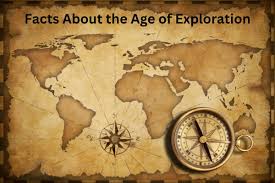The Thrill of Exploration: Embracing the Unknown
Exploration is a fundamental aspect of human nature, driving us to venture into the unknown, push boundaries, and discover new horizons. From ancient seafarers navigating uncharted waters to modern-day space explorers probing the depths of the cosmos, the spirit of exploration has shaped our world and expanded our understanding of it.
At its core, exploration is about curiosity and a thirst for knowledge. It is about stepping out of our comfort zones, embracing uncertainty, and being open to new experiences. Whether it’s embarking on a solo backpacking trip through a foreign land or delving into unexplored scientific frontiers, exploration challenges us to grow, learn, and adapt.
Exploration also fosters a sense of wonder and awe. The beauty of standing at the edge of a majestic canyon or gazing up at a star-filled sky reminds us of the vastness and complexity of our world. It inspires humility and gratitude for the wonders that surround us, urging us to protect and preserve them for future generations.
Moreover, exploration promotes innovation and progress. Throughout history, explorers have sparked advancements in technology, science, and culture by pushing boundaries and questioning conventions. By venturing into new territories – both physical and intellectual – we uncover hidden treasures that enrich our lives and broaden our perspectives.
As we navigate through life’s journey, let us embrace the spirit of exploration. Let us seek out new experiences, challenge ourselves to grow, and approach the unknown with courage and curiosity. For in embracing exploration, we not only discover the world around us but also discover ourselves.
9 Benefits of Exploration: Expanding Knowledge, Inspiring Creativity, and Connecting with the World
- 1. Broadens horizons and expands knowledge
- 2. Fosters a sense of curiosity and wonder
- 3. Encourages personal growth and self-discovery
- 4. Promotes cultural understanding and appreciation
- 5. Inspires creativity and innovation
- 6. Builds resilience and adaptability
- 7. Creates unforgettable memories and experiences
- 8. Connects us with nature and the world around us
- 9. Contributes to conservation efforts by raising awareness
Exploration Challenges: Navigating Risks, Wildlife, Environmental Impact, and Costs
- Risk of danger or injury in unfamiliar or hazardous environments
- Potential for encountering hostile wildlife or dangerous conditions
- Impact on local ecosystems and cultures through increased human presence
- Financial costs associated with travel and exploration activities
1. Broadens horizons and expands knowledge
Exploration serves as a powerful catalyst for broadening horizons and expanding knowledge. By venturing into unfamiliar territories, whether physical or intellectual, individuals are exposed to new perspectives, cultures, and ideas that challenge their existing beliefs and expand their understanding of the world. Through exploration, individuals have the opportunity to learn from diverse experiences, engage with different ways of thinking, and gain insights that enrich their lives and foster personal growth. The act of exploring not only opens doors to new possibilities but also encourages continuous learning and discovery, ultimately leading to a more informed and enlightened global community.
2. Fosters a sense of curiosity and wonder
Exploration fosters a sense of curiosity and wonder by encouraging individuals to question, observe, and seek out new knowledge. When we embark on journeys of discovery, whether physical or intellectual, we are prompted to explore the world with fresh eyes and an open mind. This sense of curiosity fuels our desire to learn more about the intricacies of our surroundings, leading to a deeper appreciation for the beauty and complexity of the world. As we uncover hidden treasures and encounter unfamiliar landscapes, cultures, and ideas, we are inspired to marvel at the wonders that exist beyond our everyday experiences.
3. Encourages personal growth and self-discovery
Exploration serves as a catalyst for personal growth and self-discovery by pushing individuals out of their comfort zones and exposing them to new experiences, challenges, and perspectives. Through exploration, individuals have the opportunity to confront their fears, overcome obstacles, and develop resilience. It encourages introspection, fosters a deeper understanding of oneself, and promotes self-confidence as individuals navigate unfamiliar territories and learn to adapt to diverse environments. Ultimately, the journey of exploration not only broadens one’s horizons externally but also leads to profound internal growth and self-realization.
4. Promotes cultural understanding and appreciation
Exploration promotes cultural understanding and appreciation by exposing individuals to diverse traditions, customs, and ways of life. Through immersive experiences in different cultures, explorers gain valuable insights into the rich tapestry of human diversity. By engaging with local communities, trying new foods, and participating in cultural activities, explorers develop empathy, respect, and appreciation for the uniqueness of each culture. This fosters mutual understanding and bridges gaps between people from different backgrounds, ultimately promoting harmony and unity in our global society.
5. Inspires creativity and innovation
Exploration fuels creativity and innovation by exposing individuals to new environments, perspectives, and challenges. When we venture into uncharted territories, whether physically or intellectually, we are forced to think outside the box, adapt to unfamiliar situations, and come up with creative solutions. The act of exploring ignites our imagination, pushing us to break free from conventional thinking and explore possibilities we may have never considered before. This process of discovery not only inspires innovative ideas but also encourages us to push the boundaries of what is known and create something truly groundbreaking.
6. Builds resilience and adaptability
Exploration builds resilience and adaptability by exposing individuals to unfamiliar situations and challenges, forcing them to navigate uncertainty and overcome obstacles. Through exploration, individuals learn to adapt to new environments, cultures, and circumstances, honing their problem-solving skills and flexibility. This ability to adjust and thrive in diverse settings not only fosters personal growth but also equips individuals with the resilience needed to face life’s inevitable ups and downs with confidence and grace.
7. Creates unforgettable memories and experiences
Exploration has the remarkable ability to create unforgettable memories and experiences that stay with us for a lifetime. Whether it’s witnessing a breathtaking sunrise from a mountaintop, immersing oneself in a vibrant local culture, or embarking on an unexpected adventure off the beaten path, each exploration journey offers unique moments that leave a lasting impression. These memories not only enrich our lives but also shape our perspectives, reminding us of the beauty and diversity the world has to offer.
8. Connects us with nature and the world around us
Exploration serves as a powerful conduit that connects us with nature and the world around us. By venturing into uncharted territories and immersing ourselves in diverse landscapes, we forge a deep bond with the natural environment. Whether hiking through lush forests, diving into crystal-clear waters, or gazing at majestic mountain ranges, exploration allows us to appreciate the beauty and intricacies of the world. This connection with nature not only enhances our sense of belonging and stewardship but also fosters a profound appreciation for the wonders that surround us.
9. Contributes to conservation efforts by raising awareness
Exploration contributes to conservation efforts by raising awareness about the importance of protecting our natural environment and cultural heritage. Through exploration, individuals have the opportunity to witness firsthand the beauty and fragility of ecosystems around the world. By sharing their experiences and stories, explorers help shed light on environmental issues, endangered species, and threatened habitats, prompting action and advocacy for conservation initiatives. This increased awareness generated through exploration plays a crucial role in fostering a sense of responsibility towards preserving our planet for future generations.
Risk of danger or injury in unfamiliar or hazardous environments
Exploration, while exhilarating and rewarding, comes with the inherent con of facing the risk of danger or injury in unfamiliar or hazardous environments. Venturing into uncharted territories or navigating through challenging landscapes can expose explorers to various threats such as extreme weather conditions, wildlife encounters, natural disasters, and physical obstacles. The lack of familiarity with the surroundings and potential hazards increases the likelihood of accidents or emergencies that may jeopardize the safety and well-being of individuals embarking on exploratory journeys. It is crucial for explorers to prioritize safety measures, conduct thorough risk assessments, and be prepared for unforeseen circumstances to mitigate the dangers associated with exploration in unfamiliar or hazardous environments.
Potential for encountering hostile wildlife or dangerous conditions
Exploration, while exhilarating and enlightening, comes with inherent risks, including the potential for encountering hostile wildlife or dangerous conditions. Venturing into uncharted territories exposes explorers to unpredictable environments where encounters with aggressive animals or extreme weather conditions can pose significant threats to safety. From venomous snakes in dense jungles to treacherous mountain terrains prone to avalanches, the element of danger adds a layer of complexity and uncertainty to exploratory journeys, underscoring the importance of thorough preparation, risk assessment, and respect for nature’s formidable forces.
Impact on local ecosystems and cultures through increased human presence
The con of exploration lies in its potential impact on local ecosystems and cultures due to the increased human presence in previously untouched areas. As explorers venture into remote regions, they may unknowingly disrupt fragile ecosystems, introduce invasive species, and contribute to habitat destruction. Additionally, the influx of tourists and travelers can put pressure on local communities, leading to changes in traditional ways of life, loss of cultural heritage, and exploitation of natural resources. It is essential for explorers to approach new territories with respect, mindfulness, and a commitment to preserving the environment and respecting the indigenous cultures that call these places home.
Financial costs associated with travel and exploration activities
The financial costs associated with travel and exploration activities can be a significant con for many individuals. From airfare and accommodation expenses to entrance fees for attractions and costs of guided tours, exploring new destinations can quickly add up and strain one’s budget. For those with limited financial resources, the high costs of travel may deter them from embarking on adventures and experiencing different cultures firsthand. Additionally, unexpected expenses or emergencies during travels can further exacerbate the financial burden, leading to stress and uncertainty. Despite the enriching experiences that exploration offers, the financial aspect remains a considerable barrier for many aspiring adventurers.






